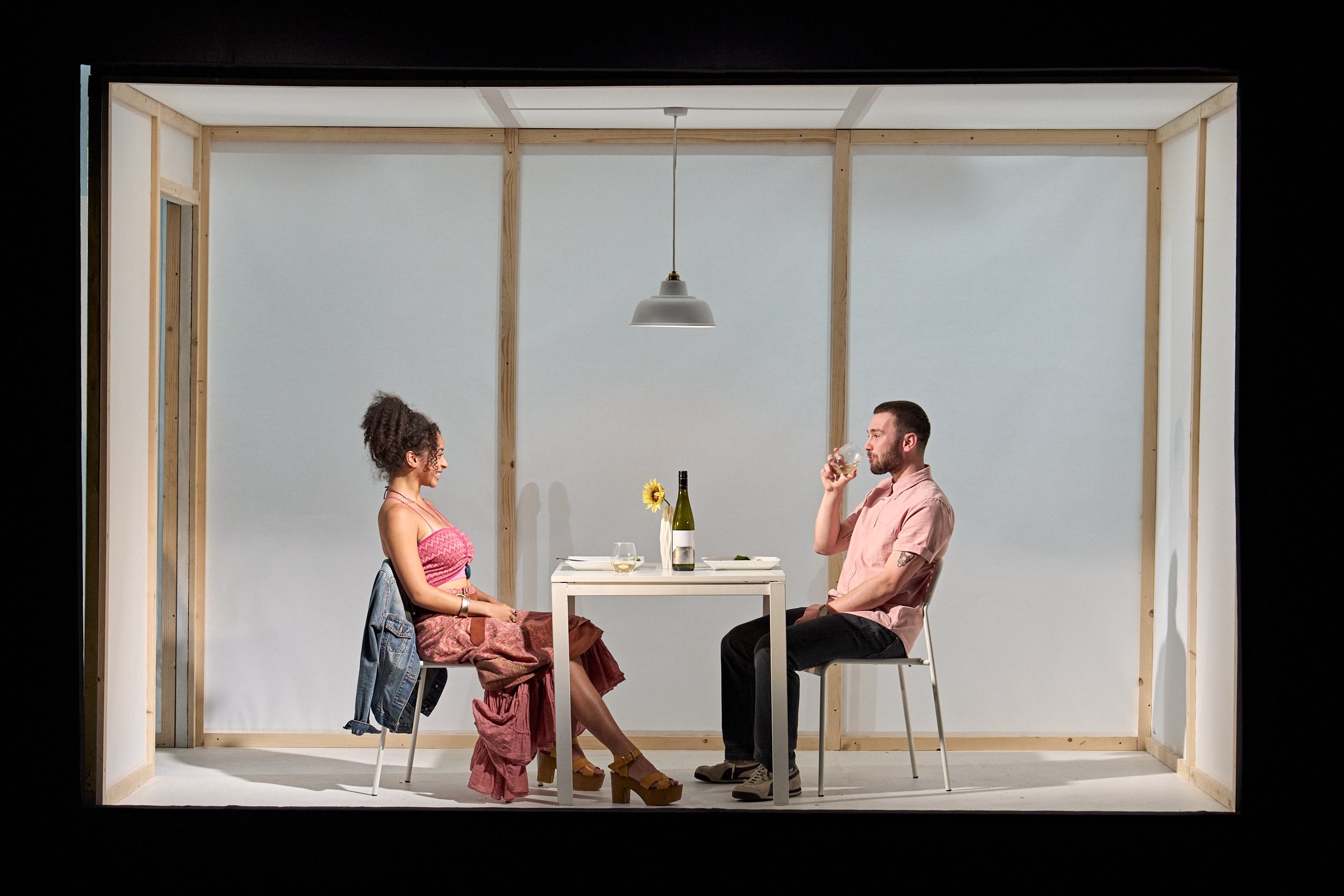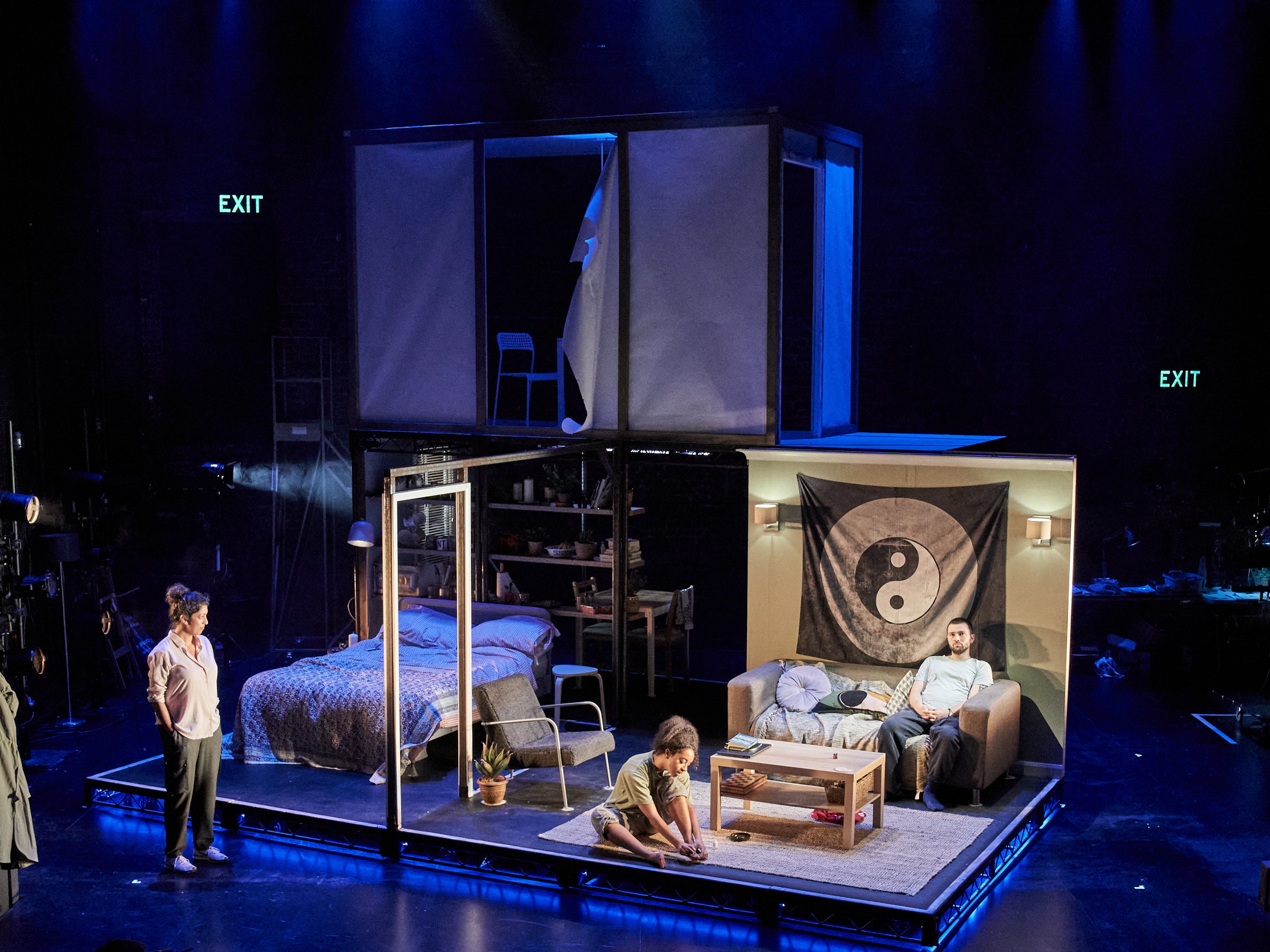That Is Not Who I Am review: This strange political mystery is a significant work
The playwright’s identity was subject to frenzied speculation, which was fitting for a play about online conspiracy theory-ism

Your support helps us to tell the story
From reproductive rights to climate change to Big Tech, The Independent is on the ground when the story is developing. Whether it's investigating the financials of Elon Musk's pro-Trump PAC or producing our latest documentary, 'The A Word', which shines a light on the American women fighting for reproductive rights, we know how important it is to parse out the facts from the messaging.
At such a critical moment in US history, we need reporters on the ground. Your donation allows us to keep sending journalists to speak to both sides of the story.
The Independent is trusted by Americans across the entire political spectrum. And unlike many other quality news outlets, we choose not to lock Americans out of our reporting and analysis with paywalls. We believe quality journalism should be available to everyone, paid for by those who can afford it.
Your support makes all the difference.Internet wormholes are dangerous things. Fall into one and you face an unknown outcome. You could lose days to Wikipedia’s “personal life” section. You could form a parasocial relationship with that woman you’ve never met who always posts pictures of her nice house. You could develop anti-vaxxer tendencies. In That Is Not Who I Am, the latest Jerwood Theatre Downstairs show at the Royal Court, a young couple bond over their fondness for shadowy corners of the internet; they fall in love over a 9/11 conspiracy theory.
Fittingly, the play has become an internet wormhole in itself. Since it was first announced as the debut work of unknown playwright Dave Davidson, who had “worked in the security industry for 38 years”, people online have clamoured to find out his true identity. On finding out that the culprit was in fact the award-winning Lucy Kirkwood, people on the internet responded as though something had been personally taken from them. Because that’s the way people mainly react on the internet now. The whole thing has been like a piece of durational performance art; I suspect Kirkwood has us exactly where she wants us.
Kirkwood’s pseudonym and the play’s fake title – it’s really called Rapture – cleverly illuminates that this is a production about suspicion, misinformation and how alternate realities get constructed online. We’re told (falsely, of course) that they were measures put in place to protect Kirkwood’s safety: she’s been researching what happened to Noah and Celeste Quilter, a young anti-establishment couple, and the Home Office has been trying to censor her. Noah and Celeste meet on a blind date for a newspaper column and quickly discover they are kindred spirits, bursting – literally – through the scenery as they jump into a life together.

Noah is an ex-soldier who now spends his days trying to find a job online. He becomes confused about his politics, unable to find a party or movement that expresses his ideals. Celeste is an exhausted nurse in the NHS, who can directly pit the difficult reality of her job next to empty statements from politicians. The scenes of their early courtship are breezy and funny, and Jake Davies and Siena Kelly are excellent as the Quilters, egging each other on as they become increasingly occupied by activism. Priyanga Burford plays Kirkwood, who has written herself in as a floating presence who fills in the gaps like the narrator of a true crime podcast. Naomi Dawson’s revolving set, moved around by stage managers, reveals artifice is at the heart of this story.
It’s 20 minutes too long, perhaps, and towards the end the tone tips towards melodrama. But otherwise, this is undoubtedly a majorly significant piece of writing. In exploring the way that rampant internet conspiracy theory-ism has disrupted our logical thought processes, Kirkwood is entering urgent territory. Because this isn’t just about the malleable nature of the truth online, but who is allowed to ask questions. The working-class Quilters are pulverised by the cost of living crisis, but despite their understandable distrust of the government, their rejection of corporations is easy to mock, isolating them further. “You think I’m mentally ill because I wanna ask questions?” Noah says at one point. This is a strange political mystery that’s exhilarating to watch, but full of things that are frightening to contemplate.
‘That Is Not Who I Am’ is at the Royal Court until 16 July
Join our commenting forum
Join thought-provoking conversations, follow other Independent readers and see their replies
Comments